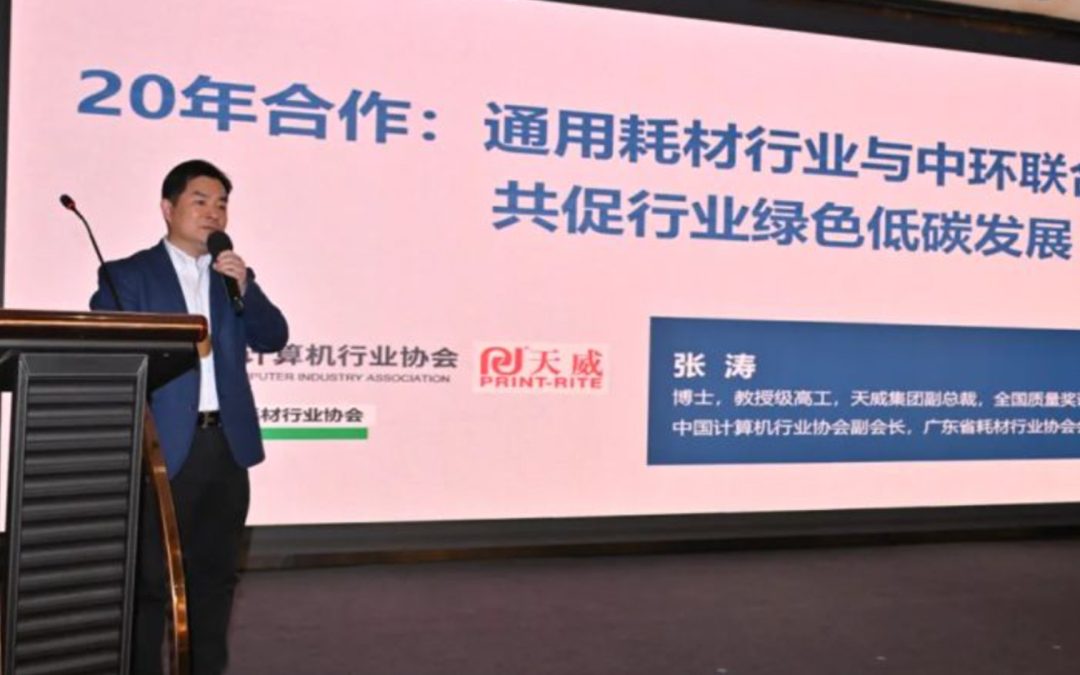 Pelikan announces a range of Bio Based reusable cartridges and will be positioned 25% cheaper for the end user compared to buying a new original OEM cartridge.
Pelikan announces a range of Bio Based reusable cartridges and will be positioned 25% cheaper for the end user compared to buying a new original OEM cartridge.
Print-rite, owners of the 182 year old Pelikan brand has launched a range of bio based reusable cartridges creating a new category of product which is completely game-changing in terms of environmental impact.
Steve Weedon, CEO at Pelikan and Print-Rite Europe explained “This new bio based cartridge is made from reusable bio plastics with a Bio based toner made of 48% organic materials, all of which is certified by the TUV accreditation. The new cartridges have a lower C02 footprint and all the components can be recovered for reuse or remanufacturing but if they are thrown away and effectively end up in landfill, they will start to decompose at around 90-180 days at 16°C (60°F) and 90% humidity”.
Commenting on the print quality, Weedon responded “Because of the bio-based ingredients in the toner the print density is actually improved and there is no sacrifice at all in terms of print output performance. The print performance is quite outstanding scoring 1.54 on the solid area density test and with a very low background test of 0.5.”
Bio-based Plastic: What does that mean? The Pelikan cartridge toner is reported to have 48% bio-based content and 57% for the bio-based plastics. The Hubs website explains: “The bio-based plastic is made of PLA (Polylactic Acid) is a biodegradable (under the correct conditions) thermoplastic derived from renewable resources such as corn starch or sugarcane. It is one of the most popular bioplastics, used for many applications ranging from plastic cups to medical implants. The other plastic used in the cartridge is ABS (Acrylonitrile Butadiene Styrene), a common thermoplastic well known in the injection molding industry. It is used for applications such as LEGO, electronic housings and automotive bumper parts.” You can read the information here.
In making the PLA plastic Weedon said “We use organic materials like coffee grind, soya, sugars, starch, plants and wood. As a thermoplastic, it has the characteristic that at a low temperature the cartridge plastic can be returned to a usable thermoplastic amorphous liquid that can be reused. And during that process no toxic gasses are given off.”
The European Bioplastics website states “There is no common agreement on a minimal value yet due to varying regional regulations in Europe. In Japan an industry-wide commitment sets the “biomass margin” at “25 percent renewable material”. According to the USDA Bio-preferred Programme, “the minimum share of renewable material ranges from 7 to 95 percent” depending on defined product category rules.”
Reusable too: According to Pelikan, “Once used, the cartridge can be remanufactured using standard components just like the OEM used cartridge. Like all Print-Rite Patent Safe Cartridges, it is not designed as a Single Use Cartridge (SUC). If the cartridge ends up in landfill, the bio plastic will start to decompose at 90 – 180 days at 60°F and 90% humidity.”
Editor’s Opinion: Is the Pelikan bio-based reusable cartridge the game-changer that can take market share from the OEM? Time will tell, but interestingly, consumer trends are changing and 60% of consumers that would have been brand loyal ten years ago are more likely to switch brands for price and better brand connection. Look at how Lidl and Aldi have disrupted the supermarket space in the last ten years,























